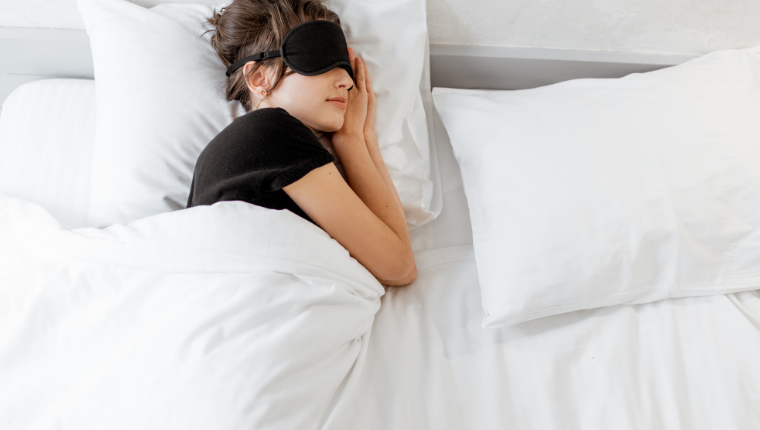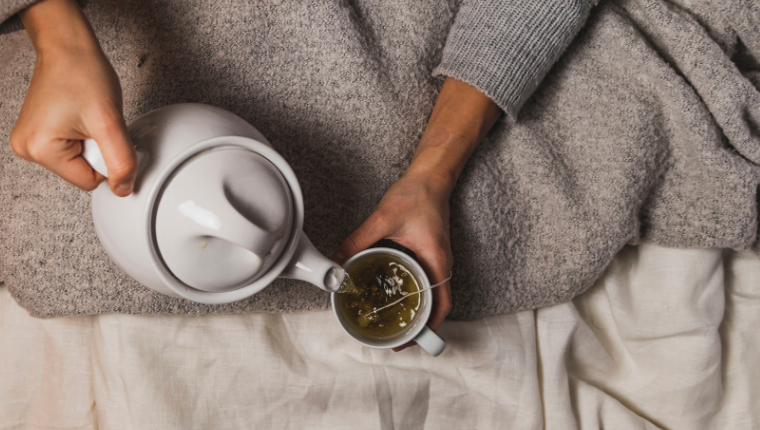What You Need to Know During Better Sleep Month
April 27, 2021 | by BMI Staff
Do you wish you could get to sleep faster, stay asleep longer, and wake up each morning refreshed and energized? Good sleep is vital to our health, which is why the entire month of May is dedicated to it! Insufficient sleep has actually been deemed by the CDC to be a public health epidemic. Better Sleep Month exists to raise awareness regarding the negative effects of poor sleep and the benefits that good sleep can provide. Continue reading to learn why you need a good night’s sleep and how to achieve it!
How much sleep do you need?
Now we know sleep is vital to our health, but how much is enough? If you’re an adult, you probably need between seven and eight quality sleep hours every night. If you tend to burn the candle at both ends (stay up late and wake up early), making little adjustments to your schedule to ensure those hours will be crucial to long-term health and happiness. If you have children keep in mind that they need a bit more sleep than you do. Teens need between eight and 10 hours, children need between nine and 12 hours, preschoolers need 10-13 hours, toddlers need 11-14 hours, and babies need 12-16 hours. Make sure to adjust bedtimes around these needs so that everyone can wake up feeling refreshed!
Tips for getting better sleep.
The next key part to focus on is the word “quality” in conjuncture with length. Ten hours of poor quality sleep will still have negative effects on day-to-day life as well as long-term heath. If you tend to sleep restlessly or wake frequently through the night, you may need to switch up your pre-bed routine. Here are some tricks that might help you sleep more soundly:
- Quit caffeine before the afternoon hits. Even though the sun is still up at this time of the day, caffeine can affect some people for hours. If you are sensitive to caffeine, cut the afternoon iced coffee or energy drink. Replace it with carbonated water or a bit of exercise to get your energy levels up more naturally.
- Skip the pre-bed gulp of water. If you are the type of person who feels a rush of thirst right before bed, you might also be the type of person who wakes frequently throughout the night for trips to the bathroom. Save yourself this sleep disruption by filling up on water throughout the day and avoiding it for about an hour before bed. You may also add one last trip to the bathroom to your nightly routine before retiring for the evening.
- Take a melatonin supplement. Melatonin is a natural hormone produced by the body’s pineal gland. The hormone is intended to make us sleepy when it’s time for bed and wake us up when it becomes light out. This hormone is trained by a routine schedule, which is why it is so important to maintain a common sleep pattern. However, if your day doesn’t allow for such a routine or if your routine simply isn’t cutting it, you can take a supplement of synthetic melatonin to boost the effects of this hormone before bed. You can purchase melatonin over the counter and in a variety of forms from just about any grocery store or pharmacy.
- Drink some tea. Now this trick doesn’t work with just any tea, and especially not a kind that includes caffeine. However, some herbal teas have been used for years to naturally combat insomnia. Chamomile tea is the most noteworthy for this quality. In addition to reducing inflammation, it contains the antioxidant apigenin, which binds receptors in your brain to reduce anxiety and trigger sleep. Some other herbal remedies to combat insomnia include valerian root, lavender, and lemon balm. If you struggle with sleep, consider experimenting with these natural sleep promoters before bed.
- Get insured. We know what you may be thinking, but you might be surprised by how closely our anxieties are tied with the potential loss of our valuables! If you find yourself worried about your home and the things inside of it, don’t let it keep you up at night. Call your BMI agent to go over your coverage and start sleeping like a baby again.









